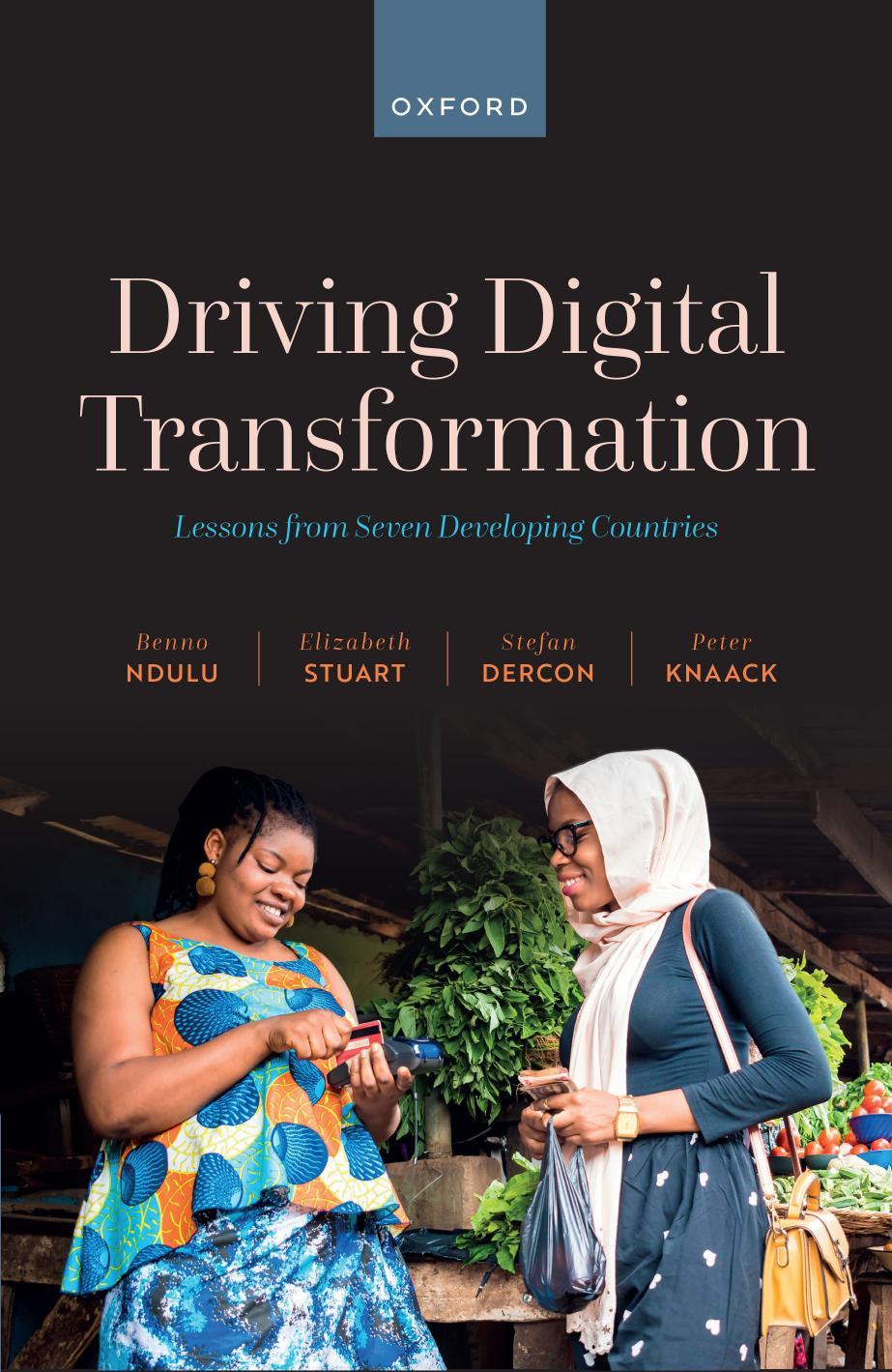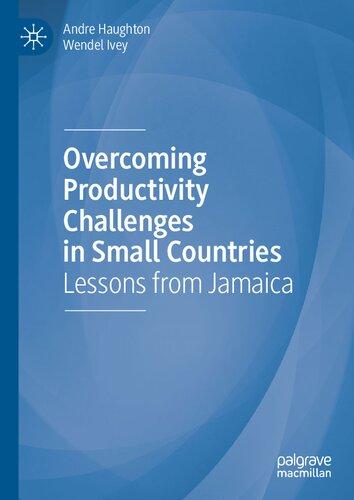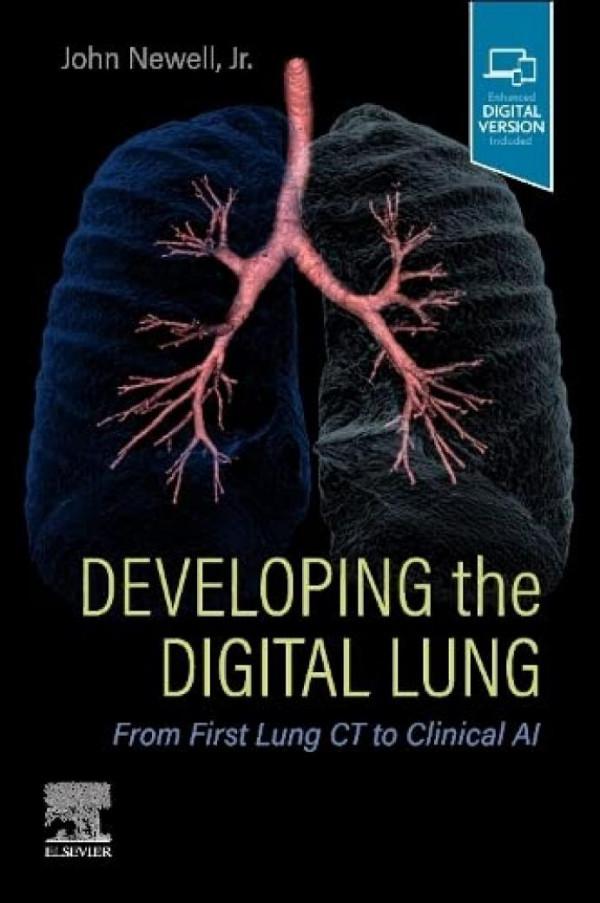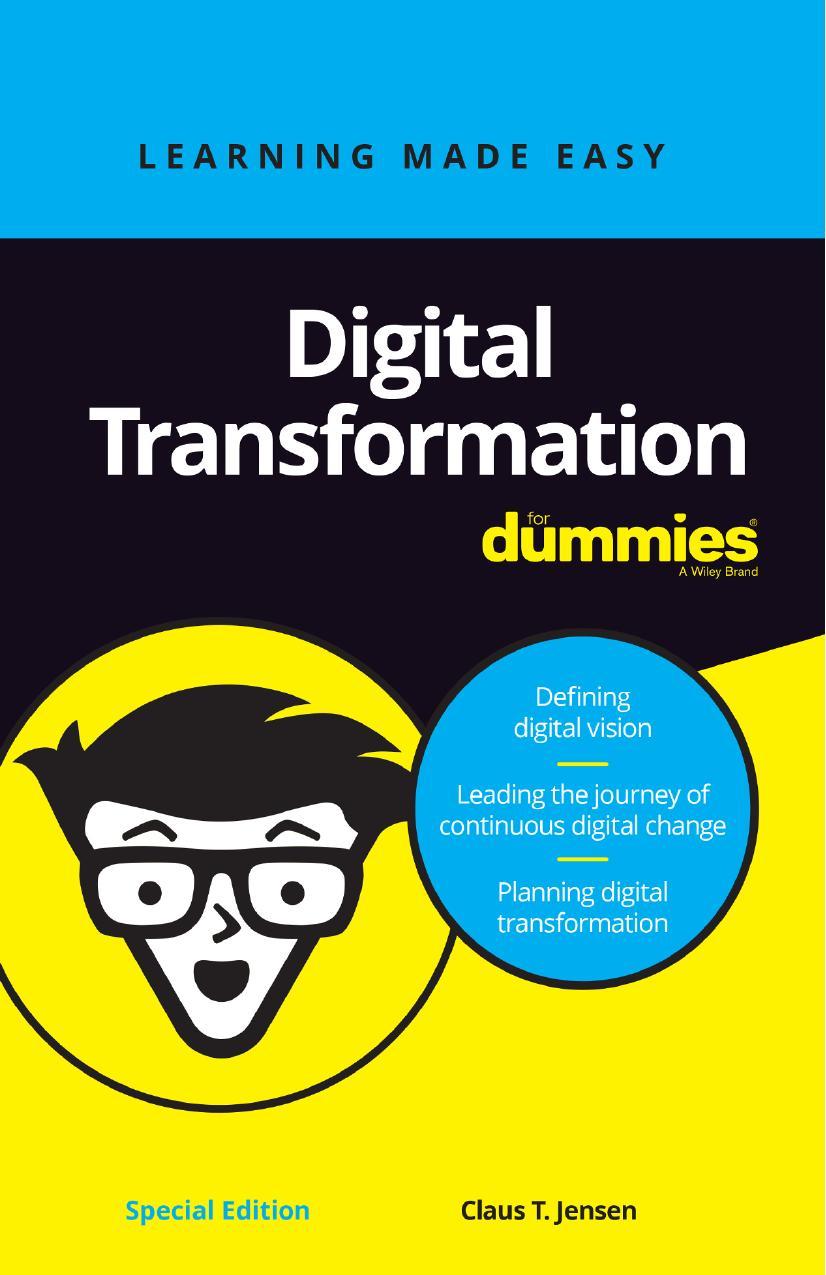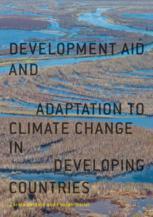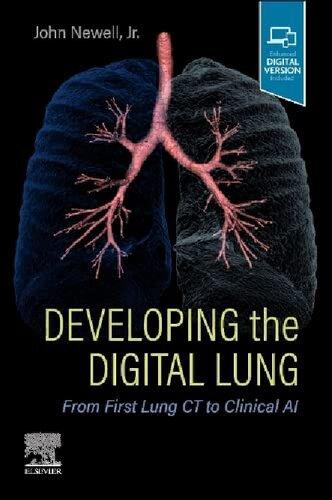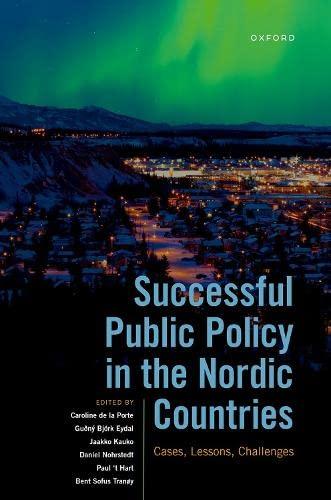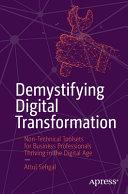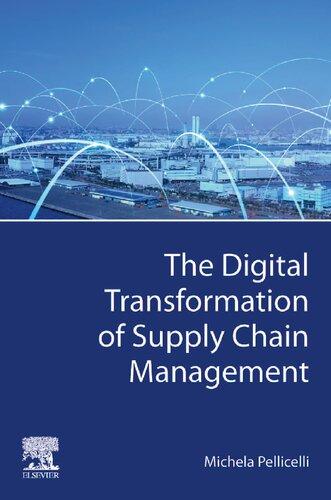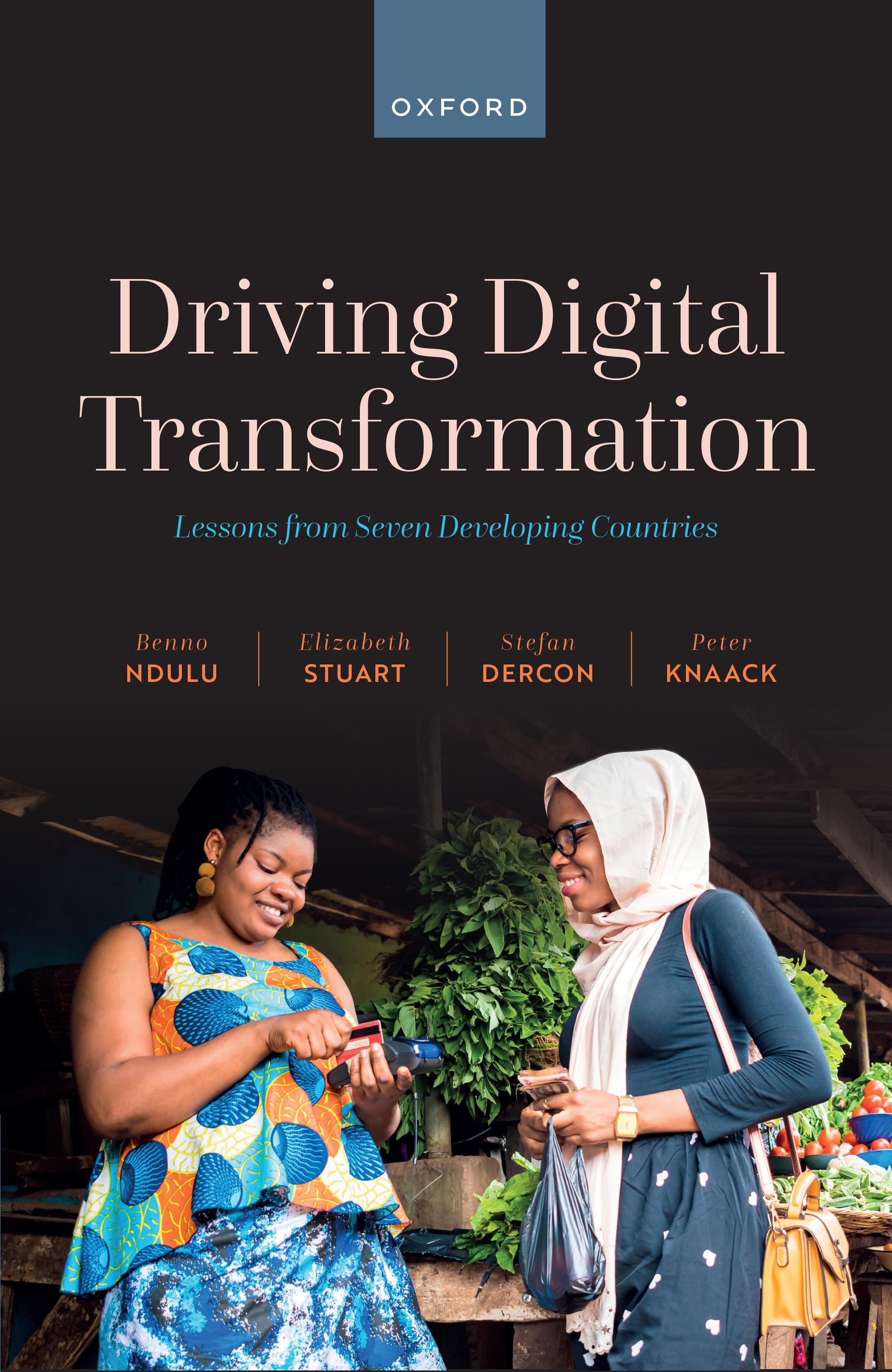Preface:RememberingBennoNdulu
AlthoughthisbookcarriesthenameofBennoNdulu,hepassedawayin February2021.Naminghimasitsleadauthoris,however,anythingbutartisticlicence:hewastheintellectualarchitectoftheDigitalEconomyKit,its penholder-in-chief,aswellasitsleadenvoy.
Thebookhasbeenwrittentoconveylessonslearntintheprocessofworkingwithagroupofdevelopingcountriesintheireffortstoidentifythe necessaryfirststepstostartdigitaltransformation.ItwasBenno’sfervent hopethatothercountriesbeyondthisinitialgroupwouldmakeuseoftheKit. Thebookserves,then,asa‘handover’toothergovernmentsandtheirstakeholderswhomightwanttoattemptsimilarefforts.Butmorethanthat:the bookalsodrawsfromtheKitexperiencetospeaktowiderdebatesabouthow outsiderspartnerwithdevelopingcountries.Theimportanceofrespectfully supporting(ratherthandirecting)policymakers,andofoutsidersdeferring todomesticknowledgeonacountry’sowninterestswerebothprinciplesthat droveBenno’spolicyapproach.
BennoNduluwasearlytorecognizethepotentialofdigitaltechnologyfor Africaneconomiesandsociety.DuringhistenureasgovernoroftheBank ofTanzania,apositionheheldfrom2008to2018,hedemonstratedadedicationtoshepherdingprogressinbothdigitalaccessandinclusion,and whereverpossible,theintersectionofthetwo.Inhisroleasgovernor,hecreatedTanzania’sNationalCouncilforFinancialInclusion.Thisbodyoversaw theNationalFinancialEducationFrameworktoensurethedemandsideof financeinclusion—thatis,thatordinarypeopleareabletounderstandhow toaccessanduseit.1 HewasalsooneofthefirstgovernorsinAfricatoinsist thatthetrustfundswhichmobileoperatorscreate—frominterestaccrued onmoneydepositedbysubscribersinmobilebankingaccounts—werenot deliveredtohigh-profilecorporatesocialresponsibilityprojects,butrather werepaidouttousersthemselves—mainlyordinarycitizensandinformal workers.2 Itishardtoimagineothercentralbankgovernorshavingsuch concernforpoorpeople’sengagementwiththefinancialsystem.
Bennotookthisleadershiponfinancialinclusionoutsidehiscountrytoo. HechairedtheAllianceforFinancialInclusion,aglobalgroupofcentral bankgovernorsandfinancialregulatorsconcernedwithincreasingaccess toqualityfinancialservicesforthepoorest.Hewasinvolvedincountless
fintechinitiatives,includinginspiringthecreationofFinsysinTanzania.Finsysisnowworkingtoimplementapro-poorinteroperablepaymentssystems forlow-valuecross-borderretailpaymentsintheEastAfricanCommunity region.
Butbeyondthis,hewasabrilliantleaderinagenerationofcentralbankers andeconomistswhoturnedaroundthemacroeconomicfortunesofthecontinent.Hisexcellenceasacentralbankgovernorwasrecognizedin2018, whenhewasnamedCentralBankeroftheYearintheAfricanBanker Awards,forhisworkonfinancialinclusionandforhissoundmacromanagement.Hewasaguide,mentor,andtrainerofpolicymakersacrossAfrica,via theresearchnetworkhehelpedtofound—theAfricanEconomicResearch Consortium—and,morespecifically,forfellowcentralbankers,viatheConsortium’sCentralBankGovernors’Forum,ofwhichhewasafounding member.Informally,healsomentoredseniorofficialsandscholarsalikefrom aroundthecontinent.
Evenasheheldsuchhighawardsandseniorpositions—hewasaprofessorofeconomicsattheUniversityofDaresSalaam,hadbeenawardedan honorarydoctoratefromtheInternationalInstituteofSocialStudies(ISS) inTheHague,andhadhadalongengagementattheWorldBank—healso concernedhimselfwithsupportingthenovicescholar,themostjuniorstaff memberofacentralbank,andtheaspiringpolicymaker.
WewereexceptionallyfortunatetohavehimjointheBlavatnikSchool ofGovernmentasanassociate,andtakeonthepositionofacademiccodirectorofthePathwaysforProsperityCommissioninthatsameyear.Some policymakersonthecontinenttalkedabouttheFourthIndustrialRevolution(4IR),andoutsideAfrica,thegovernmentofEstonialedthechargeon e-government.Buttherewerefewothersatthattimetalkingaboutthedigital economyasawhole.Bennowasfocusedonthepotentialofdigitaltechnologies,forinstance,tohelpfarmersworkinginfieldswhomightnotbefamiliar withthelanguageofthe4IR,butwhowerehighlyarticulateonthechallenges theyfacedintheirdailylivestoincreaseyield.Asafarmerhimself,hefelt someaffinity.
BennoguidedthePathwaysforProsperityCommission,andlateritssuccessorinitiative,DigitalPathwaysatOxford,withararemixofvision, foresight,pragmatism,humility,andhumour.Noneofthework—leastofall theDigitalEconomyKit—couldhavehappenedinthewayitdidwithouthis leadershipandperspective.
HeparticularlylenttheDigitalEconomyKithispassionateattention,as hebelieveditoffersagenuinelynewwayofsupportingcountriestoidentify whattheirfirst—ornext—stepscouldbeinbuildingthesoftinfrastructure
Preface:RememberingBennoNdulu vii thatdigitaltransformationwouldrequire(‘interoperability’wasoneofhis favouritewords),aswellasthedigitalskillsthatwouldallowallusersmaximallytobenefitfromit.Itsdesignbearsthehallmarksofhiswayofworking. Notleastofthesewashisbeliefintheessentialrolethatdialogueplaysin progress.
NatuMwamba,hisformerdeputybankgovernor,describestheseinterests andbeliefs—ininclusion,intechnology,andingrowth—thatunderpinned theDigitalEconomyKit:
Hewasoneofthefirstgovernorstosay,lettheinnovationcome—wewillregulateit later.…Hewaspassionateabouthelpingthepoorestpeopleinsocietyandmaking surethatthebenefitsofthattechnologyaccruetothemarginalised.…Hewas alsobigonscale.Hewasfrustratedbyallthepilots,hewasimpatientthatthey happenedbuttheyweren’tscaling,andtheimpactwasnotbeingfeltbythosewho neededitmost.Also,digitalwasn’tyetfullyintegratedintocountries’strategies andplans.…Healsoalwaysinsistedonhavingthesupply-sideanddemand-side atthetable.Youneedtobeabletolookintotheeyesoftheserviceusersasyou designpoliciesandtools.Thatwashisview.
Likesomanyofthoseweworkwith,wearehonouredtohavecalledourselves Benno’scolleagues,andweareprofoundlythankfulforhisfriendship.We arealsodeeplygratefultoBenno’sfamilyfortheirsupportofthisbookgoing aheadasamemorialtohimandadedicationtohislifeandwork.
ElizabethStuartandStefanDercon
Endnotes
1. TanzaniaNationalCouncilforFinancialInclusion,‘NationalFinancialEducationFramework2016–2020:APublic–PrivateStakeholders’Initiative’,2017, https://www.fsdt.or.tz/ wp-content/uploads/2017/02/FSDT-NFEF-Report.pdf.
2. ClaudiaMcKay,‘InterestPaymentsinMobileWallets:BankofTanzaniaApproach’, ConsultativeGrouptoAssistthePoor(CGAP)(blog),28June2016.
Acknowledgements
Thisbookhasreliedinverylargepartonthetimeandgenerosityofthosewe haveinterviewedforit.Ithasalsobenefitedfromconversationswithpartners intheDigitalEconomyKitsinthesevencountriesdiscussedinthisbookand otherdevelopmentexperts.Wewouldliketothankthefollowingfortheir insights,support,andassistance:
NoamAngrist,MarinaBarker,Bolor-ErdeneBattsengel,Maleda Bisrat,AnirChowdhury,RicciCoughlan,ShantaDevarajan,Francis DoussouSognon,ChristopherEleftheriades,TelmenErdenebileg,Tunde Fafunwa,GargeeGhosh,AlisonGillwald,PranjaliGupta,NagyHanna, ZulkarinJahangir,JulietKairuki,LinlyKufeyani,KondaineKaliwo,Grace Kumchulesi,EmmanuelMalukeLetete,AlessandraLustrati,DeclanMagee, StephanMalherbe,AdelaideMatlanyane,ArchitaMisra,JasmineMronga, ThomasMunthali,NatuMwamba,MariamLukandamilaNdulu,Rosemary Ndulu,JohnNorris,IfyOgo,SarahPannell,TobyPhillips,TebelloQhotsokoane,MehnazRabbani,MyriamSaid,YezidSalami,AlbertusSchoeman, MarkSchoeman,AndySearle,MatthewSharp,VincentShaw,TengisSukhee, HeidiTavakoli,AndrewToft,JoshuaValeta,KorstiaanWapenaar,Martin Williams,andSinitZeru.
WewouldalsoliketothankJocelynPerryforherresearchassistance.
WearegratefulforfundingfromtheGermangovernmentthroughGIZ whichhasallowedtheauthorstoworkonthisbook.
IntroductiontotheDigitalEconomyKit
Introduction
Theroad’spotholeswereastarkcontrasttothedestinationofthecoach-load ofyoungwomendrivingoverthem:abrandnewbuildinghousingoneof Bangalore’smanyinternet-enabledservicecompanies—thisoneproviding accountancysupportservices—newlybuiltontheoutskirtsofthecity.This contrastisnotsomethingwesawonlyinIndia.Intheovercrowdedstreetsof Indonesia’scapital,Jakarta,thebrandnewhelmetofferedtooneofuswas astrikingjuxtapositionwiththeageingmotorbikeanditssimplydressed driver,summonedusinganapp.InKenya,eveninruralareas,we’vebought softdrinksviaquickmoneytransferfromourphonetotheshopkeeper’sfor adecade.ButinDurban,SouthAfrica,weweresurprisedtohearaboutcompaniesteachingEnglishtoChinesestudentsoverZoom.And,perhapsmost surprisingly,inEthiopia—acountrystillstrugglingwithgettingfastinternetinfrastructure,andexperiencingregularelectricityblackouts—wemet theownerofacompanysupplyingsportingstatistics,givingthehalf-time balltouchesandmissedtacklesinmatchesforlivebroadcastsinaDutch soccercompetition.Alltheseexamplesgiveaglimpseofhowdigitaltechnologieshavearrived,andbeguntochangeeconomicactivity,notjustin thesmartsuburbsofSanFranciscoorLondon,butalsoinareasotherwise stillfarpoorerandlessadvancedintheireconomies.Allthesecountriesare startingtoobservedigitaltransformation—asystematicintroductionofdigitaltechnologiesintheeconomyandsociety.Thisischanginghowgoodsand servicesareproduced,consumed,andexchanged,leadingtochangesinthe organizationofbusiness,government,andsocietyasawhole.
Ofcourse,acrosscountries,theentryofdigitaltechnologiesisnotequal acrossdifferentsectorsoftheeconomy,acrossdifferentaspectsofdaily life,andacrossdifferentgroupsinsociety—youngorold,richorpoor. Butitishappening;andinotherwiseless-advancedeconomiestoo.Around theworld,governmentstalkaboutwantingtotakeadvantageofthenew opportunitiesofferedbydigitaltechnologies.However,manyfinditdifficult
toidentifywheretostart.Atthesametime,outsideagenciesandtech entrepreneursappeartoofferthemoon—readysolutionsthatwillunlockall potential.
Thisbookdocumentseffortstoassistagroupofdevelopingandemerging countrygovernmentsinpreparingastrategicapproachtodigitaltransformation,usingaDigitalEconomyKit(theKit).TheKitentailsadiagnosis ofthestatusquo,followedbyamulti-stakeholderprocesswithingovernmentandacrosstheeconomy,resultinginastrategyprimerthatprioritizes actionpoints.Wefoundwillingpartnersinthesegovernments:asweshall document,theyrecognized—sometimesafterinitialhesitation—thepotentialbenefits.Theirownkeeninteresttotakechargeoftheirdigitaldestiny, coupledwithuncertaintyastohowtounlockit,persuadedthemtoadopt theKit.
Theobjectiveofthebookistoofferearlylessonslearntfromthisprocessforotherpolicymakers,andthosewhowillsupportthem,wholikewise wanttoinitiateinclusivedigitaltransformation.Wereportonthefailures andsuccessesofourapproachinsevendiversedevelopingcountries,in chronologicalorder,startingin2018:SouthAfrica,Ethiopia,andMongolia(formallyourpilotcountries);Malawi,Bangladesh,andLesotho;andone otherthatwedocumentbutdonotname,primarilytobeabletoconsider whathappenedwithouttheconstraintoftiptoeingaroundpoliticsforfearof causingembarrassment.
Weinterpretsomeofthechallenges,andsomepositiveinterimoutcomes, withincomplementaryframeworksrelatedtobureaucraticpolitics,economic,andotherspecialinterests.Wealsolookatrent-seekingwithinthe elitebargainofthosewithpowerandinfluence.Withhindsight,wedraw lessonsforwhatweshouldhavedonedifferently.Hence,aswellasastory aboutwhathappenedinthosecountries,thebookpresentsacriticalevaluationoftheefforts,andofferstheoreticallyembeddedrationalesforwhy,and moreimportantlyhow,thefailuresandsuccesseshappened(orrather,are happening).
Likewesay,wechronicleandcriticallyappraisethedownsaswellas theups.Theseincludeamajorbust-upinonecountry(thenamelessone) betweenthedigitalministerandthedigitaladvisortothepresidentwhich threatenstoderaileverything.Inanothercountry(whichwedoname: Ethiopia),thecentralbankwantedtoproduceregulationwhichwouldeffectivelymakemobilemoneyillegal,untiltheMinistryofFinanceintervened. Thecourseofdevelopmentrarelyrunssmoothly.
Wefeelconfidentindeducingtheselessonsbecausetheyarebasedonpatternsacrossatleastsomeoftheseven(again,verydifferent)countries.They
alsofitwiththerelevantliteraturewereference(ofwhich,moreinamoment); andtheyintuitivelyfitwiththelivedexperienceoftheauthors.Assuch,this bookisintheproudtraditionofShiller’snarrativeeconomics:‘aresearch methodthatpresentsone’sownnarrativeofhistoricalevents’.1 Wecanoffer thelessonswithadegreeofassurancepreciselybecauseofthedesignofthe Kit,withitsfocusonathoroughunderstandingofcontext,whichmeansthat someofthetrapsofgeneralizationareavoided.2 Furthermore,theselessons are,weargue,equallyapplicabletomanydevelopmentprocesses.Therefore, wealsoofferwiderthoughtsonhowoutsiderscanusefullyhelpreformin developingandemergingcountries.
TheKitisaloosemethodologytobeadaptedineachcountryasthecontext demands.Itisnotablueprint,butratheranarchitect’ssketch,tostaywiththe constructionanalogy.Thisisappropriateasdigitaltransformationcannotbe boughtofftheshelf.Itsrollouttookplaceincountrieswhich,whilelargely meetingthreepreconditions(demand,achampion,andtiming),werealso selectedaccordingtoourknowledgeandcontacts.Thereissomedangerthat thepoliticaleconomyframeworkdelineatedinthisbookwillbeviewedasan attemptatpost-hoctheorization.Instead,ratherthanaclumsybidtoformalizethehunches,intuition,andreal-worldexperiencethatdrovethedesignof theKit,wehopetheframework,andthisbookmorebroadly,willbereadin thespiritoflocatingthosehunchesintheliterature.
Wecertainlybelievethereisvalueincarefulreflectiononexperiencesof implementingtheKit,basedonnationaldocuments,archivesoftheproject, andtheexperiencesofthecoreteam,thelocalimplementers,andothers weworkedwith.Thisisnotanimpactevaluation,noranevaluationofany type.Weneitherplannednorenvisagedone.Beforeworkstarted,wehadnot discussedinanydetailmetricsforsuccessforeithertheprocessortheoutcomes.Itclearlyisnotindependent,asthreeofthefourauthorsweredeeply involvedintheKit.Instead,thisisasemi-detacheddescription,withattempts tocreatesufficientdistancebetweentheobjectofstudyandourstakeswithin it,withoutclaimingscientificobjectivity,althoughaimingforhonestyand integrity.
Sadly,thereistoolittlesuchhonestyinthereportingofdevelopment,or evenmoregenerallyinworkwithgovernments.Donoragencies,underpressurefromtheirtaxpayersandaidcritics,typicallyhavetodeclaresuccessfor manyinterventions,whichtendtotakeplaceoutsideofthelocalaccountabilitysystemsinrecipientcountries.Thismeansthathistoryoftenconsistsof statementsofintentbypolicymakers,glossyproducts,andreportsbyfunders andimplementers,claimingsuccessandthenleavingonebemusedex-post whyobviousflawsandfailureswerenotspotted,orwhytheywerebrushed
underthecarpet.Wehopethatourworkcontributestosomeofthisrecording,andmayleadtomorehonestreflectiononsuccessandfailureofsupport byoutsidersinthedevelopingworldandbeyond.
Intherestofthischapterwesetoutthekeyargumentsofthebook,starting withdefiningandexplainingwhatwemeanbydigitaltransformationand why,intheend,emerginganddevelopingcountrieshavenochoicebutto embraceit.Wegoontoexplainthebook’sotherkeylessons,whicharefor outsiderswhowanttohelpsupportdigitaltransformationandotherreforms, insensibleways.Thisnextsectionismorepractical:explainingwhothebook isfor,howwewroteit,andits—andtheKit’s—origins.Weendwithachapter outline.
Ourkeymessages
Whatdowemeanbydigitaltransformation?
Muchhas—quiterightly—beensaidandwrittenaboutgovernmentsconnectingbetterwiththeircitizens.DuringtheCOVID-19pandemic,all governmentsaroundtheworldwerepushedtoprovideeducationtostudents online,andtodiagnoseandeventreatpatientsvirtually.Insomecountries, oftenthepoorest,thispushcamebeforetheywerereallyready:sometimes interventionswereverylowtech3 andeffortsweresporadic.Nonetheless, theywerethere.Thesegovernmentsclearlyrecognizeboththeneedand potentialforprovidingservicesdigitally.
Butthisbookarguesthat,whilee-governmentisvitallyimportant,for thecountriesthatmosturgentlyneedtofindwaystopursueandcontinueaconvergencewiththeeconomicpositionofbetter-offeconomies, digitaltransformationmaymeansomethingmuchbigger.Thisversionof digitaltransformationisaboutrestructuringtheeconomy—usingdigital technologiestoreducethecostof:production;exchanginggoods,services, andinformation;andorganizationandnetworking.Inotherwords,these technologiesmaybeanengineofgrowthbyallowingeconomiestocreate morevaluefromavailableresources.
Therearealreadyexamplesofthisplayingoutacrossthewholeeconomy.In thePhilippines,by2018,exportsfromIT(informationtechnology)business processoutsourcing(BPO)services—thatis,outsourcedback-officetasks suchasdataentry,accountancy,ITsupport,ortelemarketing—hadgrown threefoldintheprevioustenyears;hadcaptured10–15percentoftheglobal BPOmarket;weregeneratingone-thirdofthecountry’stotalexportearnings;
andemployed1.3millionpeople.4 Thesectoralsoprovedresilientduringthe COVID-19pandemic.
Thisgrowthneedstobeinclusive.ThePhilippines’BPOsectorhasbeen apositivedriverofinclusionandfemaleempowerment;andinruralIndia, theopportunitiesitsBPOsectorofferswomenhasresultedinhigherlabour marketparticipation,ahigherageofmarriage,bettereducationoutcomes, andgreaterreproductivechoice.5
Thereis,ofcourse,significantrisk.Whatevertheattractionsoftechnologyledchangeand‘innovatefirst,regulatelater’,largeknowledgegapsremainon optimaltechnologygovernancearrangementstomitigatethedownsiderisks ofdatasharing,competitionindigitalmarkets,cybersecurity,andothers. Thesegovernancerisks,alongsidecapacityconstraints,incentives,andpolitics,mustnotbeignored.Ifdigitaltechnologieswillnotdestroyjobs,they willcertainlydisruptthem(theargumenthereisnotsimple:manyofthejobs suitableforautomationdonotexisttostartwithinthesecountries,evenif otherjobs—plausiblyfarmoreplentifulinnumberandofhighervalue—will begained).Considerationofdigitaltransformationisnotfantasypolicymaking,andneithercanitbepresentedasa‘silverbullet’.Trade-offswillbe legion.
Wearguethatthebiggestriskfortheemerginganddevelopingcountries isinertia—orto not embracesuchtechnologies;tobeleftbehind;orfor newbusinessmodelsforservicedeliveryandproductiontoemergeinplaces unpreparedforchange,leavingeconomicopportunitiesuntappedorprofits unfairlydistributed.
Gettingtherightbuildingblocksfordigitaltransformationinplaceis essential,andtheKitisawayofhelpinggovernmentsdoso:tobereadyfor change.Wealreadyhaveasenseofthesefoundationalblocks:thehardand softinfrastructure—electricityandinternetconnectivityaswellassystems fordigitalidentityandtrusteddatasharing;thefinance;thehumancapitalof peopleskilledtoproductivelyusethetechnology;andtherequisitepolicies andregulations.Yet,beyondthesefoundations,whateveranyonemayclaim, noonereallyknowsthegranddesignthatwillbuildoutaneconomyand widersocietytowardsdigitaltransformation—asisthecasewithbroadersustainableinclusiveeconomicgrowth.Therearenofailsafearchitecturalplans. Theremaybeatemptationtooversellthepossiblespeedofchangeorthe certaintyofwhichactiontotake,butitshouldberesisted.Thisonlyservesto hindersensiblepolicyaction.Atthesametime,itcannotbetakenforgranted thatthebuildingblockswillfallintothecorrectplace:thepolicymakerwill needtotakethewheeloftheconstructionvehicle.Meanwhile,outsiderscan, atbest,fosterandsupportthisprocess;theycancontributetothepreparation
oftheground.Thisisworthwhile.Butbringingittofruitioncanonlybedone bycommittedgovernments.
Lessonsforpolicymakers
GettingsomethingliketheKitsuccessfullyimplementedwithalonger-term impactisdifficult,andneedstobeaddressedwithsomehumility.Understandingthekeyplayersandtheirinterestsearly,withanin-depthfirst-hand knowledgeofthepoliticaleconomyofchange,isessential,andtooeasily underestimated.Changedoesnotoccurdevoidofcontext,anditiseasyto underthinkthelocalpoliticalandbureaucratictensions,interests,andcapabilities,whichcanbeunderstoodthroughthelensofbureaucraticpolitics; thepresenceofspecialeconomicincumbencyinterests;andthenatureof elitecommitmenttousedigitaltransformationasonemeansforbroader economicprogressandinclusion.Evenifwedidnotshyawayfromtrying tograspthisaswethoughtaboutalliancesandtrade-offs,itiseasytonot considerfullytheimplicationsofdifferentinterestsinpolitics,theeconomy, andthebureaucracy.Webelievedwehaddoneenoughinthisarea,butactuallyneededtodomore.Afterall,anyimpactintheendismediatedthrough them.Weshould,forinstance,havebeenmorefullyawareofthefactthat someoftheseinterestsarenotfinancial,ideological,oreconomic,butrather personal.
Theadvicethatweofferinthisbookforcountrieswantingtoembrace digitaltransformation,aswellasoutsidepartnerswhomaywishtoassist insuchefforts,isinitselfunsurprising:aswithallchange,beprepared. Fordevelopingcountryofficials,weadvisethathavingastrategyinplace beforeattemptingthenecessarychangeisoptimal.Therearesomanycompetingentrypoints,andvestedinterestsattemptingtopromotedifferent priorities,thattakingthetimetocarefullyexaminestartingpointsandto identify,togetherwithstakeholders,thesectorsforwhichdigitaltechnologies realisticallyofferthemostpromisingopportunitiesissensible.
Anystrategywillneedtheseriousbuy-inandcommitmentofdifferent stakeholders,coordinationacrossgovernment,andthecooperationofkey economicplayers.Successwillonlybepossiblewithaclearunderstandingofthestateofaffairs,anassessmentofwhatcouldbedonenext,and thedelineationofdeliberatebutrealisticaction,givenlocalcapabilitiesand structures.Fromtheoutset,itisessentialtobeclearaboutwhowilldrive thisprogressaftertheinitialperiod.Thiswillentailidentifyingtheindividualchampion,group,ororganizationwithingovernmentthatcandriveit,
andtheoverarchingpoliticalsupporterstoleveragesuccess.Itwillalsobe necessarytolearnfrommistakes.AsignificantlearningfortheOxfordteam inthisprocessisthatweshouldhavestartedplottinghowcoursecorrections couldbeachievedearlier,bywhom,andindeedhowimplementationcould bechampionedfollowingtheproject’scompletion.
Insomeofthesevencountriesthereisasensethatthesepoliticaleconomy factorscanbesufficientlyovercome,partlyduetotheattractionacrossstakeholdersofmovingintonewactivitieswithlimitedincumbents.Thismeans thereisareasontohavesomeoptimismaboutlonger-termtrajectories,and tothinkthatthiswork(theKit)mayhaveapositiveinfluence.Inothercountries,theever-presentconstrainingfactorsmayhavestifledanytinysteps towardsreasonablechangeandtransformation.
Lessonsforoutsiders
Foroutsiders,whateveracountryoritsgovernmentmaydreamof—whether claimingtowanttoemulatetheeconomicmodelsofFourAsianTiger economiesorimaginingthatthefantasyAfricanstateofWakandaiswithin grasp—realitytendstobite.Changestartsfromaparticularstateofaffairs, conditionedbytheexistingeconomic,political,andbureaucraticconstraints. Digitaltransformation(oranyotherformofchange)willnothappenina vacuum:suchconstraintsmustbecarefullyunderstood,andcertainpreconditionsbeinplace,ifeffortsaretoleadtosuccess.
Candigitaltransformationhappenifourpreconditionsarenotinplace? Canittakeplaceoutsidesuchastrategy?Theansweris,ofcourse,yes.Butthe book’scontestationisthatitwilltakelonger,bemessierandprobablymore expensive,andmaynotoccuracrosstheeconomytoitsmaximumpotential.
ThereisalsovalueinthewaywecreatedtheKit.Evenifmaterialor directlyattributableimpactsmaystillbelimited,muchthatispositivecan betakenfromourapproach.Weshowadraftofhowtomovetowardsa moreholistic,cross-governmentandcross-interestapproachtolayingthe buildingblocksofadigitaleconomywithstronglocalownership.Thisisin contrasttooutsidersoffering‘prefabsolutions’withoutanylocalownership, letalonecontextualunderstanding.Acrossseveralcountries,wecanobserve positiveoutcomes—manyunintendedorunplanned.Somearesurprisingto us,butneverthelessfollowfromourmoresearchingapproach,andaredeliveredatverylowcosttoanyone.Ourhopeisthatotherswilllearnfromwhat wedidandimproveonit,indigitaltransformationwork,andineconomic developmentmorebroadly.
Howthebookshouldberead
Inthissectionwesetoutthebook’sintendedaudience,itsmethodology,and thecontextinwhichitwaswritten.
Theaudience
Thisbookhasbeenwrittenforthreetypesofpeople:(1)academically inclinedgeneralistswhoareinterestedinthepoliticaleconomyofreform indevelopingcountries,forwhomdigitaldevelopmentisonesuchexample; (2)academicallyinclinedpeopleinterestedinthespecificsofdigitaldevelopment;and(3)policymakersandpractitionerswhowanttosolve(some of)thechallengesthatdigitaldevelopmentpresents.Thescholarsthebook isaimedatincludethoseworkinginthefieldsofdevelopmenteconomics, politicalscience,internationalpoliticaleconomy,publicadministration,and digitalpolicy.Somepeoplemaysitinmorethanonecategory.Whileitwould beidealifthebookappealedtoallofthesecategoriesatalltimes,there areelementsthatmaybeoverlydetailedforthefirst(andpossiblysecond). Theseare,however,briefandhopefullythereforetolerable.Readersincategorythreemayfindthatthereisinsufficientdetailtofullyunderstandhowto implementaKit:thisisdeliberateasthisbookisnotintendedtobeacomprehensive‘howto’guide(forthatweincludeareferencefortheKititself),but ratherareflectiononinterestingelementsoftheKit’simplementationindifferentcountries,andonhowtherealityvariedfromwhatweimaginedwould happen.Whererelevant,weincludeadiscussiononhowthefindingsconfirm ordifferfromsomekeyrelevanttheoreticalpoliticaleconomyframeworks.i
Methodology
Theevidencebaseforthebookisaqualitativesurveyandaseriesofsemistructuredinterviews(n=32),primarilywithparticipantsoftheKitprocess inallsevencountries,conductedoveraperiodofsixmonths.Thesample includesrepresentativesofgovernment,civilsociety,privatesector,andour localpartners.Wealsointerviewedsomepeoplewithknowledgeofdigital
i Awordhereonnomenclature.Fromthispointon,whenthebookrefersto‘we’,thismeanstheauthors, oneofwhom,aspreviouslystated,didnotworkontheKit.Whenwerefertothegroupwhodesigned theKit,weusetheterm‘Oxfordteam’(or‘they’)astheCommission’ssecretariatwasbasedatOxford University’sBlavatnikSchoolofGovernment.Whenwerefertoanyoneelse,wespecify.
diagnosticprocesses,orageneralunderstandingofthedigitaldevelopment landscapeofcountrieswherewedeliveredtheKits.ii Referencestothese interviewshaveinthemainbeenanonymized,althoughwherethereisaparticularlyilluminatingquote,wehavethepermissionofthepersoncitedto namethem.Wealsodrewonthestrategyprimersorstrategiesdevelopedfor eachcountry,aswellasnationalplanningdocuments,existingdigitalplans, otherdigitaldevelopmentdiagnoses,andformalandinformalsupply-and demand-sidedata.iii Thedataareinterpretedusingatheoreticalframeworkof howpolicyaction,change,orreformmayormaynottakeplaceincountries, asdevelopedinChapter 2.Wealsolooktoevidencefromotherstudieson similaroranalogousprocessesinothercontexts.Aswereflectonimplications fordigitaldevelopmentandmorewidelytogeneraldevelopmentchallenges andpitfalls,wealsodrawontherelevantliteratureaswedoso.Thisliteraturecomesfromthefieldsofdevelopmenteconomics,internationalpolitical economy,politicalscience,publicadministration,behaviouraleconomics, andothers.
Inanyconclusionsonimpactthatwecometo,wehaveattemptedto removemisty-eyedbias,andalsotoclaimonlycontribution,neverattributionascausalityisanythingbutclear.
Thecontext:briefhistoryofthePathwaysforProsperity Commission
TheKitwasaproductofthePathwaysforProsperityCommission(henceforththePathwaysCommission),atwo-yearglobalpolicyeffortthataimed toassesswhetherandhowdevelopingcountriescanusedigitaltechnologies forinclusivegrowth.TheCommission,whichwasco-chairedbyIndonesian financeministerSriMulyaniIndrawati,technologistStriveMasiyiwa,and philanthropistMelindaGates,wasagatheringoftheunusual:althoughthe formatwasfamiliar(theslightlyclichemixofpoliticalanddonorleaders, combinedwithacademiaandprivatesectorrepresentatives),theindividualswereprimarilypeoplewhohadnotsatonsuchglobalcommitteesbefore. Personalknowledgeofthegeographies,thechallenge,andthetopichadprimacyincommissionerselection:forinstance,KamalBhattacharyahadset
ii WeomitdatafromaKitconductedinIndonesiabecausethiswaslimitedinnature:heretheOxford teamlookedonlyatdigitalskillsratherthanopportunitiesacrosstheeconomy,asanationalprocesstodo thishadrecentlybeenconducted.
iii Werecognizethroughoutthelimitsofthenatureofthedata—andinparticulardisaggregateddata thatareessentialinconsideringthedynamicsofinclusion—andtherelativelysmallnumberofkey informantinterviews.
upanedtechcompanyinKenya;ShivaniSiroyawastheCEOofTala,acompanythatusesalternativedatatoprovideinstantcredittounder-represented communitiesinKenya,Tanzania,India,andthePhilippines.TheCommissionwasalsoundertheguidanceofpeopleleadinggrowtheffortsinthe poorestcountries:VeraSongwe,ExecutiveSecretaryoftheUnitedNational EconomicCommissionforAfrica(UNECA)wasaninformalobserver.iv
Whileglobalcommitteesarelegion,v thePathwaysCommissionsetoutto dothingsslightlydifferently.Itsreportsdidnotpretendtobeeitherprimary researchorin-depthrepresentativeconsultations:insteadtheyattempted tonimblyassessthestatusquoandpolicydemand,andtooutline,forthe firsttime,pathwaysviawhichdevelopingandemergingeconomiescould fosterinclusivegrowthusingdigitaltechnologies.Theanalysiswaspresentedaspropositional,ratherthanasetofrecommendations(barthefinal report,whichwasanattempttoanswertheofficials’question:‘buthow dowedoit?’).Reportswerewritteninnon-academic,easy-to-understand language.
ItisdifficulttoestimatetheimpactoftheCommission,notleastbecause, whileitpushedagainstadominantnarrative(automationequalsjobloss, anassertionforwhichthereweredata,evenifmethodologicallycontested andmuchlessavailableforpoorerdevelopingcountries),itaimedinthe directionofcountrydemand:clearlypolicymakerswantedeconomicgrowth, mostlywithinclusion,andknewthattheyneededtoengagewithdigital technologies,eveniftheydidnotknowhow.
Butaccessiblereportsaloneareinsufficienttonudgechangeincountries, asopposedtointernationalorrich-world-basedinstitutions.Theco-chairs, academicco-leads,andcommissionerswerealignedontheimperative toproducesomethingtangiblethatpolicymakerscoulduseimmediately. HencethedevelopmentoftheKit.Again,toolkitsarehardlyrevolutionary, buttherewassomethingabouttheapproachthatwasatypical.Thefocus isacountryleadingitsownprocess,ratherthanoutsideexpertsdesigning aperfectsolution.Thestartingpointwouldalwaysbethecountry’sown stateddevelopmentpriorities,withafocusonthefeasible,givencurrent constraints,ratherthanafantasymega-mansionofthehighesttech—such asblockchain,whichmightbeasensiblestartingpointinsomecontexts,but notlikelytobesoforpoorcountries—builtonaperfectlyfunctioningpolity.
iv NoneofthecommissionerswereresponsibleexplicitlyforanyoftheKitcontents,andnotallofthem maynecessarilyagreewiththepositionsinthisbook.
v Tounderlinethepoint,aUNcommissionondigitaltechnologies,theSecretary-General’sHigh-level PanelonDigitalCooperation,overlappedwiththePathwaysCommissionintermsoftime(itwasconvenedinJuly2018andreportedinJuly2019)andrepresentation:MelindaGateswasalsoitsco-chair.The UNcommissiondidattemptawide-scaleconsultationprocess.
ThismeantthattheKit’soutputsdidnotalwayspassthestandardsofrigour ofaresearch-intensiveuniversity:inonecountryanalmostmeaningless targetondigitalliteracywasincludedinthefinalstrategyprimerforpolitical purposes;inothersthestrategyprimerwasinelegantlywritten.Butpleasing academicsisnotthepoint:theaimistoproducesomethingthathasgenuine buy-in,suchthataloosecoalitionofpeoplein-countryhaveaninterestin seeingthroughatleastsomeofit.
TheCommissionandtheOxfordteamdidnotattempttoselltheKitto developingcountrypolicymakers.Theintentionwasthatthepolicymakersthemselveswouldidentifythebenefitoftheprocessandoptintoit.In otherwords,theobjectwastoensurethattherewasclearcountrydemand. Inreality,though,theOxford-basedsecretariatneededtosetoutthebenefitsofeconomictransformationofthekinddiscussedabove,asopposedto merelyaninformationandcommunicationstechnology(ICT)strategyor e-governmentapproach.Theycertainlystimulatedthatdemand,thepresence ofwhichtheyconsideredanecessaryprecondition.Thetwootherpreconditionsforsuccessarethatthecountryneedstobeintherightplaceinits policyplanningcycle,suchthatthereisapoliticalmomentforchange;and thereneedstobeahigh-levelchampionwiththeappetiteforchange,who iswillingtodotheheavyliftingtoachieveit.Thischampionshouldbeas senioraspossibleandwithamandatetocoordinateacrossdepartments,to cutthroughbureaucraticpolitics,andmakethebestuseofspecialinterest groups.However,whileasinglevisionaryleaderisnecessary,oneindividualwillnotbesufficient;instead,aninformalcoalitionforprogressivepolicy reformshouldbeinplace.Ideallythepresidentorprimeminister(orboth) shouldbepartofthatcoalition,andasupporteroftheKit.
Havingsetoutthegeneralapproachofthebook,theremainderofthis introductionsummarizestheflowofthebook,chapterbychapter.
Chapteroutline
Chapter 2 developsapoliticaleconomyframeworkthatunderstandsdigitaltransformationasaninstanceofreform.Itidentifiesthreeconceptual approachesthathelppolicymakersunderstandtheconditionsunderwhich digitalreformislikelytosucceedorfail:bureaucraticpolitics;specialinterestgroups;andthenatureoftheelitebargain.Itshowshowthesethree approachesresonatewiththedesignoftheKitandthetheoryofchange embeddedinit.Basedonin-countryexperience,thechapterthendiscusses thethreepreconditionsoutlinedabove,andshowshowtheOxfordteamand
theirimplementingpartnersaimedtoidentifythosepreconditionsinpotentialpartnercountries.Inoneortwocountriestheteampossibly‘misreadthe runes’andwereover-optimisticindecidingtoworkthere.
Chapter3isaboutdemand.Itopenswithanexegesisofwhypolicymakers needeconomy-widedigitaltransformation,why(aftersomeencouragement)theywantedit,andwhythey(andtheOxfordteam)thoughttheKit respondedtothatneed.Enrouteitdiscussesthedriversofsuchatransformation(bringingdownthecostsofprovidinggoodsandservices,ofexchanging goodsandservices,andofnetworkingandorganization)andpresentsthe fivepathwaysdevelopedbytheCommissionbywhichdigitaltransformationcanberealizedinemerginganddevelopingcountries:raisingvaluefrom agriculture;newglobalvaluechains(GVCs)inmanufacturing;creatingnew globaltradeinservices;linkingtheinformalsectortotheformaleconomy; andcreatingdiverse,connecteddomesticeconomies.Itgoesontodiscuss howthePathwaysCommissionanditsOxfordsecretariatteamtookthese frameworksandturnedthemintoatoolkit.
Chapter4criticallyevaluatesthefirststageoftheKit:theassessmentphase. Itopenswithanassessmentofthediagnostics:theirpastuseindevelopment hasbeenchequered.Itmakesthecasethatasensiblediagnosticshouldnot justidentifysomeabstractneed,butinsteadbeclearwhatinvestmentsand otheractionsshouldbetakentounlockthenextstageofdigitalpotential. ItexplainsthesignificanceoftheKit’sdesign:whyinfrastructure,people, finance,andpolicyandregulationarethekeypillarsforaminimumlevel ofimplementationasaprerequisiteforeconomy-widedigitaltransformation.Itgoesontoassessthreerelatedchallengesthisphaseencountered inactualityinthesevencountries:poor-qualityquantitativedata;absence ofsuchdatainthefirstplace;and,whereitdidexist,theircontested nature.
Chapter 5 discussestheKit’smulti-stakeholderdialoguephase.Itsets outwhythiswasdeemedtobesoimportant:alongwiththegovernment championandsteeringcommittee,participantswouldformaloosecoalitionforsustainedchange,vitaloncetheOxfordteamhadleft.Itcompares thetheoreticaldesign(themulti-stakeholdergroupswouldholdthedifficultconversations,rehearsingandresolvingthetensionsortrade-offs)with theexpedienciesofarelativelyshortprocessinpractice.Thechapterthen discusseshowthistensionplayedout.
Chapter6explainsthetheoryandrealityoftheKit’sfinalstage:thestrategy primer.Itarguesthatoutsider-ledprocessesshouldnotdeliverrecommendations,butrathersuggestpriorityactionsorareasthatcanbeproperly
debatedandtakenupintopolicyandstrategybytheappropriatedomestic process.Otherwisethisstagebypassesorunderminesdomesticownership andpolicyprocesses.ThiswasacomplexphaseoftheKitwhichentailed boilingdownanextensiveenquiryintoanimplementablelist,andgetting thebalancerightbetweenincorporatingpre-existingprioritiesandletting theKitprocessdeterminethem.Thechapterthenexplainswhatwasneeded beyondastrategyprimerforitsactionstotakeroot.
Chapter 7 criticallyassessesimplementation.Itistooearlytosaywhat worked,andcausalpathwaysaretoouncleartoclaimanythingwithcertainty. Butthischapteroffersanattempttolinkbackanyfailures—andapparentinitialsuccesses—tothethreeperspectivesonthepoliticaleconomyofreform. Someareduetonotgettingbureaucraticpoliticsright,suchas‘turfwars’ andinter-ministerialsiloes.Othersare,somewhatcounterintuitively,dueto alackofspecialinterestgroups.Stillothershavefailedtotakeoff—atleast sofar—becausetherewasneveranelitebargaininplacethatwaswilling togambleondigitaltransformationinthefirstplace.Apparentsuccesscan alsobeassociatedwiththesethreeperspectives.Thechapterstatesthat,in somecountries,theKit has fosteredalooseallianceofpeoplewithashared interestinseeingthestrategyprimersconvertedintopolicyimplementation. ThisappearstobethecasemostobviouslyinLesotho,SouthAfrica,and Mongolia,andperhapsBangladeshandEthiopiatoo.
Chapter 8 istheconclusion.Theprimaryargumentoftheconclusionis that,evenwhenyouthinkyouhavebeenpoliticallysmart—andtheOxford teamdesignedtheKitwithrealpolitikatitsheart—youprobablyhavenot beensmartenough.Sensiblepeoplecandisagreeontheinitialoutcomes oftheKit:anoptimistwouldpointtoitsachievements;apessimistwould saythatchangewasalreadycomingandtheKitonlynudgedatthemargins,ifatall,andthatanycoalitionsforchangearenotlikelytolast.Both canbecorrect,butthischapterassertsthat,forallthechallengesitmet, theKitwasworthwhileforthecountries,anditsdesignandrolloutoffer widerlessonsforoutsidersseekingasensibleroleinhelpingdeveloping countrieswithchange,beitdigitalorotheraspectsoftheireconomiesand societies.
Eachchapterincludesitsownspecifickeylessonsforeachstageofthe Kitconsultationandimplementationprocess;theconcludingchapterends withthreeoverarchinglessonsonachievingdigitaltransformation,andfive lessonsonhowtosensiblydrivereformasanoutsiderworkingwithlocalincountryagenciesandpartnerships.Wehopethattheselessonswillinspire powerfuleffortsforinclusivedevelopmentinthefuture.
Endnotes
1. RobertJ.Shiller, NarrativeEconomics:HowStoriesGoViral&DriveMajorEconomic Events (Princeton:PrincetonUniversityPress,2020).
2. LantPritchettandJustinSandefur,‘ContextMattersforSize:WhyExternalValidity ClaimsandDevelopmentPracticeDon’tMix’,CGDWorkingPaper(Washington,DC: CenterforGlobalDevelopment,2013).
3. NoamAngrist,PeterBergman,andMoitshepiMatsheng,‘School’sOut:Experimental EvidenceonLimitingLearningLossUsing“Low-Tech”inaPandemic’,NationalBureauof EconomicResearchWorkingPaper28205(January2021), http://www.nber.org/papers/ w28205
4. WorldBank,‘PhilippinesEconomicUpdate:InvestingintheFuture’(Washington,DC: WorldBank,2018).
5. RobertJensen,‘DoLaborMarketOpportunitiesAffectYoungWomen’sWorkandFamily Decisions?ExperimentalEvidencefromIndia’, TheQuarterlyJournalofEconomics 127, no.2(1May2012):753–92, https://doi.org/10.1093/qje/qjs002.
